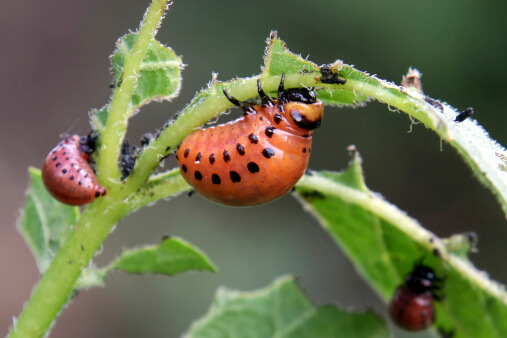
Three Ways to Control Garden Pests without Harming Beneficial Insects
Here’s a news flash – Not all bugs and insects are harmful or pose a threat to your garden. In fact, many insects (dubbed beneficial) help to keep their more destructive cousins under control. However, that does not mean that they cannot use a little help in their mission. This raises an important question: how to eradicate harmful insects without harming the beneficial ones? Fortunately, there are a number of effective alternatives available that will help keep your garden looking great while still maintaining harmony and balance.
Know your enemy – keep a guide to garden pests handy
The first step in any pest control program is understanding the different insects found in your garden (both above and below ground). Your local lawn and garden store will be able to provide you with a general profile of what to expect, and the county extension agency can identify any insects not found in the standardized who’s who of local pestilence. If you are working with a pest control company, talk with them about your concerns and your desire to protect beneficial insects.
Once it is known what is populating the garden, creating an insect specific pest control program becomes much easier; you will be able to target specific pests without putting the good guys in harm’s way.
Use alternatives to chemical pesticides
Chemical pesticides are not the be-all and end-all when it comes to controlling garden pests. And, in fact, they have a serious drawback in that some are indiscriminant in their effectiveness and will kill all insects that are exposed to them. If you choose to eschew this category of insecticide, look to organic or alternative measures to control pests including:
- Bio-insecticides;
- Botanical insecticides;
- Diatomaceous earth;
- Horticultural oils;
- Insect Barriers;
- Insecticidal soaps; or
- Lures and traps
Any, or all, of these is effective, and they can be combined with one another to deliver an extremely effective approach to pest control while leaving the good bugs alone to live in joy and prosperity.
Pay attention to the label on any pesticides used
If you are using pesticides, either chemically based or organic, carefully read the label. It will tell you about the dangers, what insects will be killed, and the environmental impact the insecticides may have. In addition, you will find information on how to safely apply the product, in what quantities, and how frequently. Regardless of which option you choose, taking the recommended precautions means minimizing residual damage while helping your garden grow.
When caring for your garden, it is important to keep in mind that bio-diversity is important and maintaining a healthy population of beneficial insects will help your garden looking great. Pay attention to the pest control products you are using, and then follow proper application processes to keep the bloom on the roses – and everything else.